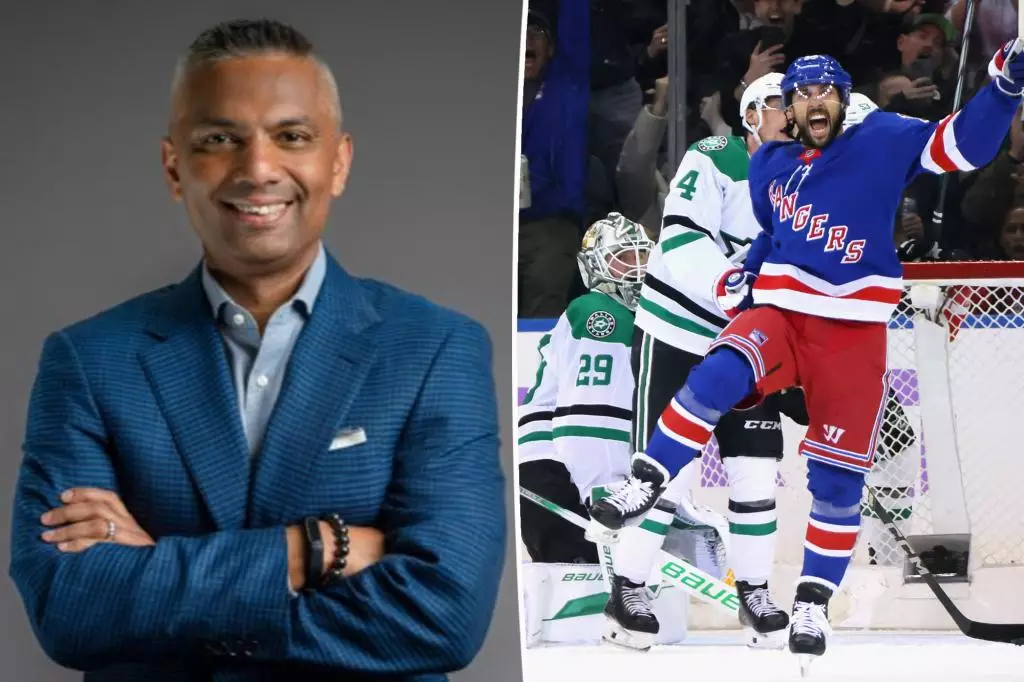The recent outcry surrounding the absence of broadcast coverage for New York Rangers games on Optimum has reached a strange zenith. This odd scenario was highlighted when Dennis Mathew, CEO of Altice—the parent company of Optimum—was spotted at Madison Square Garden, indulging in a hot dog during a Rangers match against the Dallas Stars. This baffling encounter raised eyebrows across the world of sports and media, especially considering the ongoing dispute between Optimum and MSG (Madison Square Garden Company) that has kept the games off the airwaves for nearly a year.
Stakeholders were astonished not just by Mathew’s presence, but by his apparent normalcy amidst a backdrop of corporate tension. One insider mentioned in a rather cynical tone that Mathew was obviously among those who would usually be watching the game at home, but instead found himself partaking in the live atmosphere, possibly so as not to miss the action. The juxtaposition of the CEO, who presides over a company embroiled in a contentious negotiation, enjoying sporting entertainment speaks volumes about the disconnect between corporate maneuvers and consumer experience.
The financial strain between Altice and MSG is rooted in a strident disagreement over carriage fees. For years, Optimum has carried Knicks and Rangers games on its network, paying MSG approximately $10 per subscriber. Recent negotiations have been fraught with complications, with Altice looking to renegotiate this fee. Mathew’s insistence that the proposed increase would unfairly burden consumers who have no interest in watching games reveals a deeper concern about how these corporate dealings affect the average viewer.
The spokesperson’s rebuttal to concerns about price hikes paints Altice as a reluctant party, claiming they are eager to negotiate in good faith, while simultaneously portraying MSG’s demands as opportunistic price gouging. The narrative set forth indicates an ongoing struggle where viewer interests are seemingly sidelined in favor of corporate profits and strategic positioning.
Fans are caught in the middle of what resembles more of a corporate turf war rather than a straightforward disagreement. Many loyal Rangers followers find themselves at a loss, unable to enjoy hometown games, which speaks to the wider implications of this feud. When regional sports networks and cable providers clash, it’s the everyday spectator who bears the brunt of the fallout, unable to showcase their allegiance to their favorite teams.
The absence of MSG games on Optimum means losing a vital piece of the cultural asset that sports represent in a bustling city like New York. Both parties must reconsider their approaches, taking into account the consumer’s experience—all while sorting out their own financial grievances.
This ongoing debacle serves as a reminder of the often tempestuous nature of media rights negotiations in professional sports. It’s an essential reminder that while corporations tussle for power and profits, the true heart of the matter lies within the passionate fan base that supports these teams. A resolution needs to be reached quickly—one that prioritizes access and affordability for customers, ensuring they can enjoy the thrill of live sports without the headwinds of corporate maneuvering blowing in their faces.

